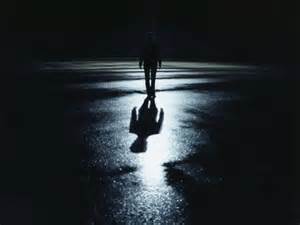Scripture Text: John 13: 21-32
21After saying this Jesus was troubled in spirit, and declared, “Very truly, I tell you, one of you will betray me.” 22The disciples looked at one another, uncertain of whom he was speaking. 23One of his disciples—the one whom Jesus loved—was reclining next to him; 24Simon Peter therefore motioned to him to ask Jesus of whom he was speaking. 25So while reclining next to Jesus, he asked him, “Lord, who is it?” 26Jesus answered, “It is the one to whom I give this piece of bread when I have dipped it in the dish.” So when he had dipped the piece of bread, he gave it to Judas son of Simon Iscariot. 27After he received the piece of bread, Satan entered into him. Jesus said to him, “Do quickly what you are going to do.” 28Now no one at the table knew why he said this to him. 29Some thought that, because Judas had the common purse, Jesus was telling him, “Buy what we need for the festival”; or, that he should give something to the poor. 30So, after receiving the piece of bread, he immediately went out. And it was night. 31When he had gone out, Jesus said, “Now the Son of Man has been glorified, and God has been glorified in him. 32If God has been glorified in him, God will also glorify him in himself and will glorify him at once.
Jesus knew who would betray him. It was his friend, the one that had accompanied him as he traveled around the lake teaching, the one who had met his family, the one who on those long nights after those just-as-long frustrating days had listened to him. In fact, it would be the one he trusted. The one who held the purse that bought them small but nourishing meals and paid their way, the one that had figured out how to budget the money so that they could get to Jerusalem. It was the one that had it together. It was the last one that he would have thought would do this. But Jesus knew who would betray him. It hurt, hurt more deeply than anyone would ever know. Et Tu, Judas? Even you, Judas?
The others will probably never figure it out. They are too busy trying to figure out who it is (and trying to make sure that it’s not them!) Isn’t that what we do? In an odd sort of way, this Scripture brings out all our fears. We ask the dreaded question, “Is it I? Is it I, dear Lord, who will betray you?” But then we, like the disciples, tell ourselves that whatever it is we mess up can’t possibly be as bad as “that other guy”. And so, the world blames Judas for all of our wrongs. Because, if we make Judas look bad, then maybe we won’t look as bad as we know we might be. Dante would place him in the fourth level of the ninth rung of hell. (Now let me tell you, that is NOT good.) According to Dante’s Inferno, Judas shares this rung with Brutus and Cassius, who played a part in the murder of Julius Caesar. (Et Tu, Brute?) We are no better. As long as there is a Judas, we have seemed to allay our fears that we are not the worst. And yet, we’re always afraid that that may not be the case.
But don’t you sometimes think Judas sort of gets a bad rap? What if he really thought that Jesus would pull it out in the end? Maybe in his own misguided and controlling way, he was trying to leave an opening for Jesus to “prove” that he was God. But Jesus was not there to prove anything; Jesus was there to redeem it. I think Judas is all of us. There’s a part of Judas in us, the one that is fearful of the outcome and tries to hurry it along or control it or change it, the one who tries to control what will happen, the one who really isn’t very innocent at all. There is a part of us that lives in fear that we may not be able to change it.
But, really, do you think God desires our innocence? If that was the case, we might as well all hang it up right now! The truth is that none of us is innocent. Innocence died a really long time ago. (Or maybe it never existed at all.) And God didn’t have any need to resurrect that. God does not desire our innocence; God desires us. I once heard a professor refer to the Garden of Eden, the symbol of our “innocence”, as the “Kindergarden of Eden”. It was a place we journeyed through, a place that at the time was right for us, a place that prepared us for what would come next. But we have moved on. Innocence is overrated. God instead desires repentance, reconciliation, and redemption. God calls us to turn toward God, be with God, and accept that gift of forgiveness that God offers us. That’s all it takes. If God wanted perfect people, I’m thinking God would have made them. God would have populated the world with a bunch of pod-people and things probably would have gone a lot smoother. I don’t know…maybe God wanted better dinner conversation. Maybe God desired a good story or a good laugh sometimes. Or maybe, just maybe, God wanted us to choose God rather than being compelled by fears and control.
So, God offers forgiveness for whatever we’ve pulled in the past. Barbara Brown Taylor, in Speaking of Sin, contends that it is sin that is our only hope. Because it is when we know that we have failed, when we know that we have moved farther away from God, when we name what it is that stands in our way, that the doors will swing open with a force we never knew and all of a sudden, we find ourselves sitting at the table in a place that we did not think we deserved. Isn’t God incredible? So, why do we need to blame Judas? We are all looking for God. Sometimes we just make bad choices. Sometimes we find ourselves fearfully lost in the wilderness. But, regardless of how fearful we are, God always offers us another chance. Forgiveness is the starting point for change, the beginning of the rest of our eternity.
Madeleine L’Engle tells an old legend that “after his death Judas found himself at the bottom of a deep and slimy pit. For thousands of years he wept his repentance, and when the tears were finally spent he looked up and saw, way, way up, a tiny glimmer of light. After he had contemplated it for another thousand years or so, he began to try to climb up towards it. The walls of the pit were dank and slimy, and he kept slipping back down. Finally, after great effort, he neared the top, and then he slipped and fell all the way back down. It took him many years to recover, all the time weeping bitter tears of grief and repentance, and then he started to climb again. After many more falls and efforts and failures he reached the top and dragged himself into an upper room with twelve people seated around a table. “We’ve been waiting for you, Judas. We couldn’t begin till you came.”
This is the wilderness we walk when we are fearful of what will happen, fearful of what will become of us. We, too, find ourselves “over-reaching”, trying to control things that are not ours to control because we are scared. But God is there, waiting. The table is always set for that moment when we show up. Even you! We can’t begin until you come!
The soldiers are there with their swords and lanterns. The high priest’s slave is whimpering over his wounded ear. There can be no doubt in Jesus’ mind what the kiss of Judas means, but it is Judas that he is blessing, and Judas that he is prepared to go out and die for now. Judas is only the first in a procession of betrayers two thousand years long, If Jesus were to exclude him from love and forgiveness, to one degree or another he would have to exclude us all. Maybe this is all in the mind of Jesus as he stands with his eyes closed, or possibly there is nothing in his mind at all. As he feels his friend’s lips graze his cheek for an instant, maybe he feels nothing else…It is not the Lamb of God and his butcher who meet here, but two old friends embracing in a garden knowing that they will never see one another again. (Frederick Buechner)
Grace and Peace,
Shelli






